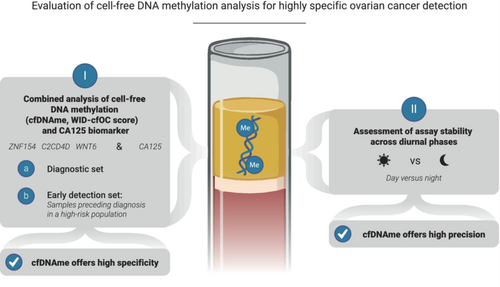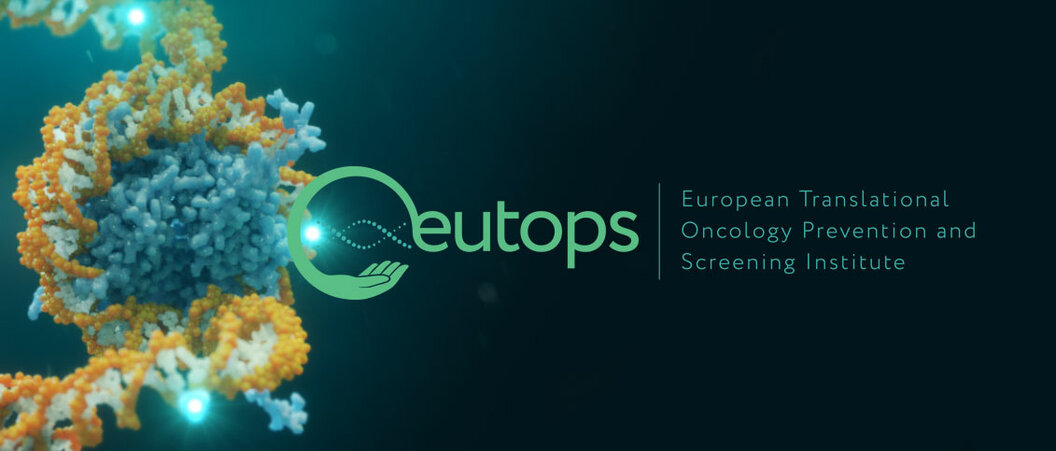The EUTOPS team’s new paper evaluates circulating cell-free DNA methylation markers that could be used to improve diagnosis and earlier detection of ovarian cancers. This work builds on our previous publication and suggests that analysis of cell-free DNA methylation, alone or combined with the existing CA125 marker, could help to detect ovarian cancers earlier and may reduce mortality from the disease.
We studied three markers in different DNA regions (ZNF154, C2CD4D and WNT6) via targeted bisulfite sequencing in diagnostic and early detection (preceding diagnosis) settings.
Our results show the test effectively distinguished benign pelvic conditions and ovarian cancers, and combination of cfDNAme with single CA125 measurement improved sensitivity beyond that of either marker alone. Furthermore, the cfDNAme test, called the WID-cfOC score, identified 33.3% of high-risk (grade 2 or 3) ovarian cancers up to a year before diagnosis.
We also explored the stability of the markers. Scores of fully methylated cfDNAme values exhibited limited variability between samples taken during the day and during the night, although some differences in scores warrant further investigation of analytical precision and its dependence on circadian rhythms.
The combination of the WID-cfOC with CA125 may be suitable to improve cancer detection in high-risk populations. Our data suggest that women with a positive score in either diagnostic modality, particularly double-positive individuals, could be referred for a PET-CT scan to rule out a positive result due to a different cancer, and could undergo surgery even in the absence of a visible ovarian tumour on imaging given the high specificity of cfDNAme.




